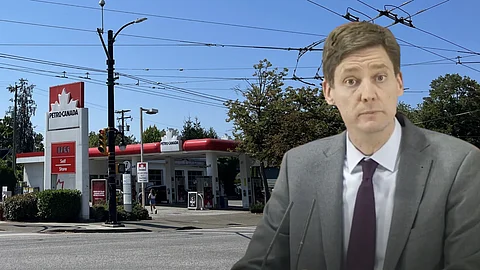

The BC NDP has admitted that British Columbians will "see immediate savings" when the provincial consumer carbon tax is eliminated on April 1.
The move to ditch the controversial policy comes shortly after Prime Minister Mark Carney ended the federal requirement.
In a statement, the BC government explained that legislation would be tabled on March 31, the day the legislature returns from its spring break. When passed, it will allow those in power to almost immediately put an end to the longstanding policy.
"People will see immediate savings through the elimination of the consumer carbon tax in British Columbia," the government added. "The Province is notifying fuel sellers and natural gas retailers now so they can take action to stop collecting the tax from consumers as of April 1, 2025."
The government noted that while the move will "require changes," fuel sellers and natural gas retailers are "expected" to "make every effort to ensure their customers are not charged the carbon tax on purchases."
"The Province will continue to act on the commitment to battle climate change by ensuring people in British Columbia have affordable options to make sustainable choices and by encouraging industry to innovate," the statement continued. "Incentivizing industry to adopt lower-carbon technologies while maintaining their competitiveness is critically important in the province."
While the consumer carbon tax will soon be a thing of the past, BC will still continue implementing the industrial carbon tax "to ensure big industrial emitters pay their fair share through the output-based carbon pricing system."
The BC NDP and Premier David Eby have long supported the consumer carbon tax, only changing their mind prior to the 2024 election.
In March 2024, Pierre Poilievre sent Eby a letter calling on him to oppose an April 1 carbon tax increase, pointing out that British Columbians already pay the highest gas taxes in Canada.
"I don't live in the Pierre Poilievre campaign office and baloney factory," Eby replied. "I live in BC. I am the premier and decisions have consequences. The fact we face is that if we followed Mr. Poilievre's suggestion there would be less money returned to British Columbians after April 1 than there would be if the federal government administered this increase directly."
Due to a high level of spam content being posted in our comment section below, all comments undergo manual approval by a staff member during regular business hours (Monday - Friday). Your patience is appreciated.
